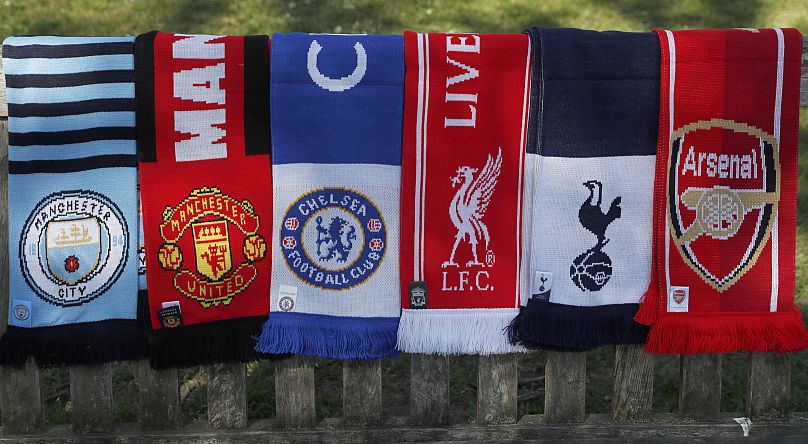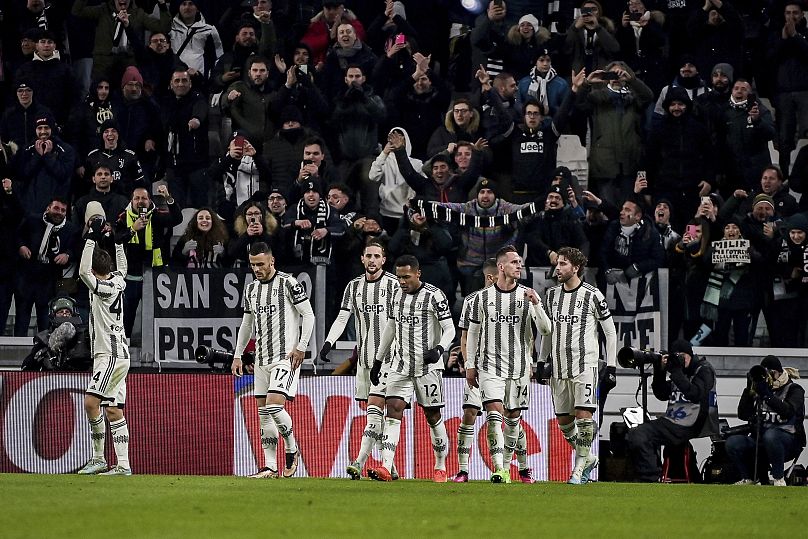No promotion, no relegation. Just a closed shop for Europe’s elite clubs. But is the European Super League still possible? In partnership with Media City Qatar.
It was a proposal that sent shockwaves through football.
No promotion, no relegation. Just a closed shop for Europe’s elite clubs. And two years on, the European Super League has not totally gone away yet. On April 21st, 2021, the story broke and took even the most experienced figures in the sport by great surprise.
What was the European Super League?
The Super League was a proposed invite-only, ‘closed shop’ league that would include some of the sport’s biggest clubs, with no promotion or threat of relegation.
Founded by Andrea Agnelli, who has previously served as chairman of Italian giants Juventus, the plans were to have 12 teams in the league who were guaranteed spots season after season, along with an addition three teams that would change depending on other factors that were never made clear.
The teams involved with the European Super League were as follows:
England
**-**Manchester United
- Liverpool
- Manchester City
- Chelsea
- Arsenal
- Tottenham Hotspur
Spain
- Real Madrid
- FC Barcelona
- Atletico Madrid
Italy
- Juventus
- Inter
- Milan
The plans for the league are thought to have started way back in 2009, with Real Madrid president Florentino Perez stating that the Champions League, Europe’s current elite cup competition run by UEFA, was ‘obsolete and problematic’ and was ‘an obstacle preventing clubs from growing their businesses and developing infrastructure’.
The idea of the Super League was that the 12 clubs would leave the Champions League competition and UEFA behind, and run their own self-regulated elite competition.
What was the reaction?
The reaction to the proposals really depended on what country you were listening to. In England, there was uproar. Not only did the wider population of football fans find the concept abhorrent, but fans of the specific clubs involved felt a sense of betrayal and shame that their clubs were the ones leading the way on a project that ripped up the English football pyramid as we’ve known it for over 125 years.
Despite Covid-19 restrictions still being enforced in the UK, the plans announcement saw large protests and in some cases, riots from fans. Manchester United fans, who in large numbers already dislike their American owners, the Glazer family, invaded the pitch in protest before a league game with Liverpool. The actions caused the game to be postponed and sparked huge conversation about whether the owners should sell the club.
After 48 hours of the football world into chaos, the English clubs involved eventually listened. By 11.30pm on 23rd April 2021, all six clubs had pulled out of the project. Fans took this as a huge win for how powerful their voices can be on these matters.
What the Super League looks like now
In Spain and Italy, the attitude was and still remains that this was their chance to catch up to the revenue levels of the Premier League. As we reported recently, the Premier League is the most popular league in world football. It pulls in an average global audience over 3.5billion, which is over a billion more every year than La Liga, which has the next best figures. Signing up for the Super League could’ve seen these clubs pocket up to €1billion up front just for entering, which would’ve given their finances a huge boost and from their perspective, made things a fairer playing field. As a result, the Super League technically is not totally dead.
“I think the Super League is a zombie league, in a sense that is not quite dead, but it's staggering on looking for new things to get its teeth into,” explained Raphael Honigstein, European football writer for The Athletic.
“But it doesn't actually feel fully alive and any real threat at this moment. The reason for that is that the English clubs who were part of the original format are not interested anymore. The German sides, for political reasons, have never been part of it. The French clubs and certainly PSG have not been part of it. And so there's no structure to it. There's no income model connected to it, there's no credible TV partner that's available. So all the vagaries within the beginning, plus the fallout make this proposition impossible at the moment.”
Although the English clubs have pulled out and have promised never to return to any type of Super League project, Real Madrid, Barcelona and Juventus still remain attached to the project.
The reason for this is that they don’t feel fairly treated by UEFA, who organise the Champions League and impose strict financial rules in order to play in their competitions. These are rules that Barcelona and Juventus in particular have tried to find loopholes, but their relationships with UEFA are not in a good place.
As previously mentioned, the idea of the Super League was to leave the Champions League behind. However, with the Super League unable to go ahead without the involvement of the English clubs, Juventus, Madrid and Barcelona still need the revenue their club generates by being involved in UEFA's Champions League. On the other hand, the Champions League would not be the same without those clubs. After all, Real Madrid hold the record number of titles in that competition. Therefore, UEFA and these three clubs need to find a way to co-exist.
So, what could be next for the Super League project? The likelihood is that it is unlikely to ever materialise, as the influence of the English clubs is too important. But with other European giants still trying to force the issue, it can’t be said for sure whether it’ll truly ever go away.















